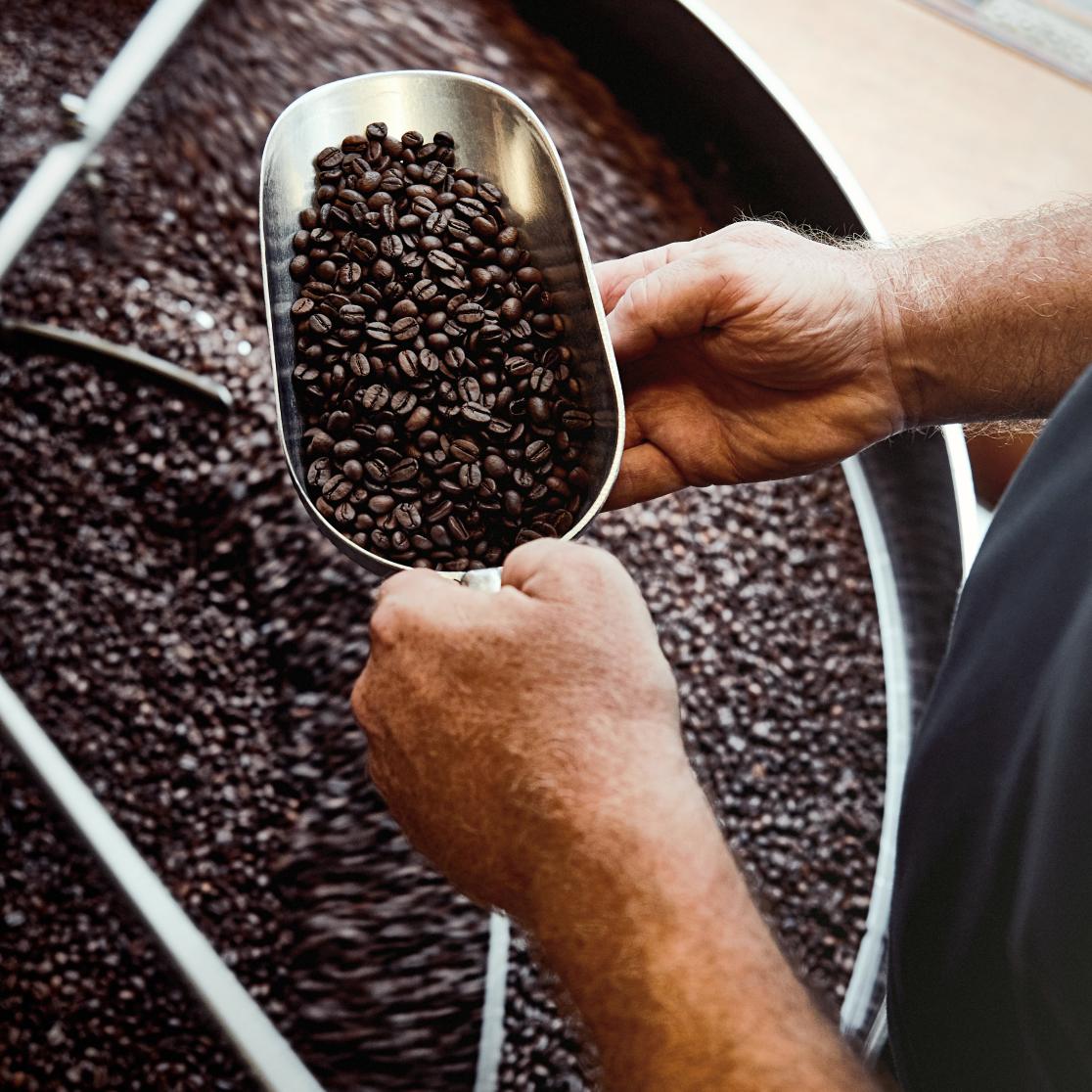Double espresso with systems thinking
UNU-MERIT’s Maria Tomai works on ECOffee, an EU-funded project to create awareness, networks and trainings around coffee consumption.
Contamination from industrial and agricultural activities, waste generation, as well as global injustice and food waste are almost too vast and devastating to comprehend. ECOffee offers a relatable way into the topic: Spent Coffee Grounds (SCG). Driven by the rapid increase of coffee consumption around the world, millions of tons of SCG end up in landfills every year, where they produce methane and carbon dioxide. At the same time, there are many proven ideas on how to manage them in more sustainable ways. SCG could be turned into solid fuels, foaming agents, flame-retardants, food packaging, fertilisers or substrates in food production. A necessary first step is for people to understand how the system works, what the problems are and how much impact what solutions make.
Coffee as a guide to complexity
UNU-MERIT PhD candidate Maria Tomai represents Maastricht University in this ERASMUS+ funded project across six countries. “ECOffee wants to map out the causal links throughout the entire coffee value chain, to show how our choices affect and get affected by market dynamics, coffee producers, traders and the broader environment.” Tomai, in this and other research lines, uses systems thinking to promote a move towards a circular economy. That means appreciating the full complexity and interdependencies of, in this case, the global value chain of coffee.
ECOffee is bigger than research into SCG. The project brings together academics, civic society representatives, NGOs, municipalities and entrepreneurs from Hungary, Cyprus, Portugal, Greece, Slovenia and the Netherlands to encourage sustainable habits in both consumers and café owners through education, training and networking. Beyond bringing together different disciplines and perspectives to map the complexity and outcomes of interconnected systems, ECOffee also produces concrete actionable steps for making a difference. “We want to provide a compelling narrative alongside the relevant facts and numbers – and also show people what they can do.” There’s also plethora of practical advice on what to do with SCG, where to get reusable cups, where to buy which coffee, how to interpret the varying certificates, and many other steps.
Cause and effect for all
To Tomai, this is crucially important. “Researchers are very good at analysing and unravelling complexity, but if you really want to make an impact, you can’t restrict yourself to the theoretic, academic world - you have to work with various groups and sectors to reach people.” At the same time, providing the whole story of how all the actionable points hang together is more likely to make people understand why what they do matters.
More than 600 people are involved in project activities. ECOffee was launched in late 2022 and will run for two years. They will produce video tutorials, workshops and host multiplier events. Currently they are developing a smartphone application with an incentive system and information around sustainable coffee consumption. Users will be able to see which brands and cafés are making an effort to be sustainable but also understand the impact. “We wanted to create a network of café owners and consumers who can exchange best practices and inspire each other.”
The ECOffee Sustainable Cafeterias Cluster in the current pilot stage includes over 40 coffee places across the six countries, including several participants in Maastricht. Sustainability criteria include producing less waste, using less plastic and disposable cups, adopting sustainable energy and water management practices, transitioning towards circular models (e.g. through recycling), having an inclusive workplace, pricing transparency, or fair-trade supply chains.
Appetite for circularity
While ECOffee focuses on Europe, Tomai’s research expertise is circular economy in developing countries – the two are inextricably linked though. The recently passed EU Deforestation Regulation Act requires , among other measures, coffee farmers to provide evidence that their goods were not grown on land deforested since 2020 . “This puts pressure on smallholders who might lack the technical capacity and financial capital to fulfil these requirements. The burden is not equally distributed.” For those who aren’t fans of fairness, there is the more existential question of sustainability – not in the sense of a future for the children, but of affordable Arabica coffee in the decade to come.
Beyond measuring the impact of interventions, Tomai’s research also shows that there’s appetite for change. “Our knowledge mapping activity among consumers and coffee owners across the partner countries revealed a low level of knowledge but also a strong willingness to learn more and change – even if there’s no direct economic benefit.” Tomai adds that, in many cases, a move towards sustainability, in particular waste reduction, actually does have economic benefits as well.
Coffee itself is also just a wedge into a much larger issue: “It’s about understanding your role in the global production-consumption system, about how everything is interconnected and that you do have some agency.”
Text: Florian Raith

Also read
-
Flour, family, and forward thinking: the evolution of Hinkel Bäckerei
In the heart of Düsseldorf, the comforting aroma of freshly baked bread has drifted through the streets for more than 130 years. Since its founding in 1891, Hinkel Bäckerei has evolved from a small neighborhood bakery into a cherished local institution.
-
The University Fund Limburg's new Annual Fund Campaign is live!
Every year during the holiday season, the UM community comes together to uphold a special tradition: supporting projects that contribute to a healthier, fairer and more sustainable society. Will you join us?
-
A new wave of talent emerges from the School of Business and Economics
On Sunday, November 30, 2025, the Maastricht University School of Business and Economics (SBE) proudly celebrated the achievements of over 1,461 graduates from both bachelor’s and master’s programs. The festive ceremony took place at the MECC Maastricht and marked a significant milestone for the SBE